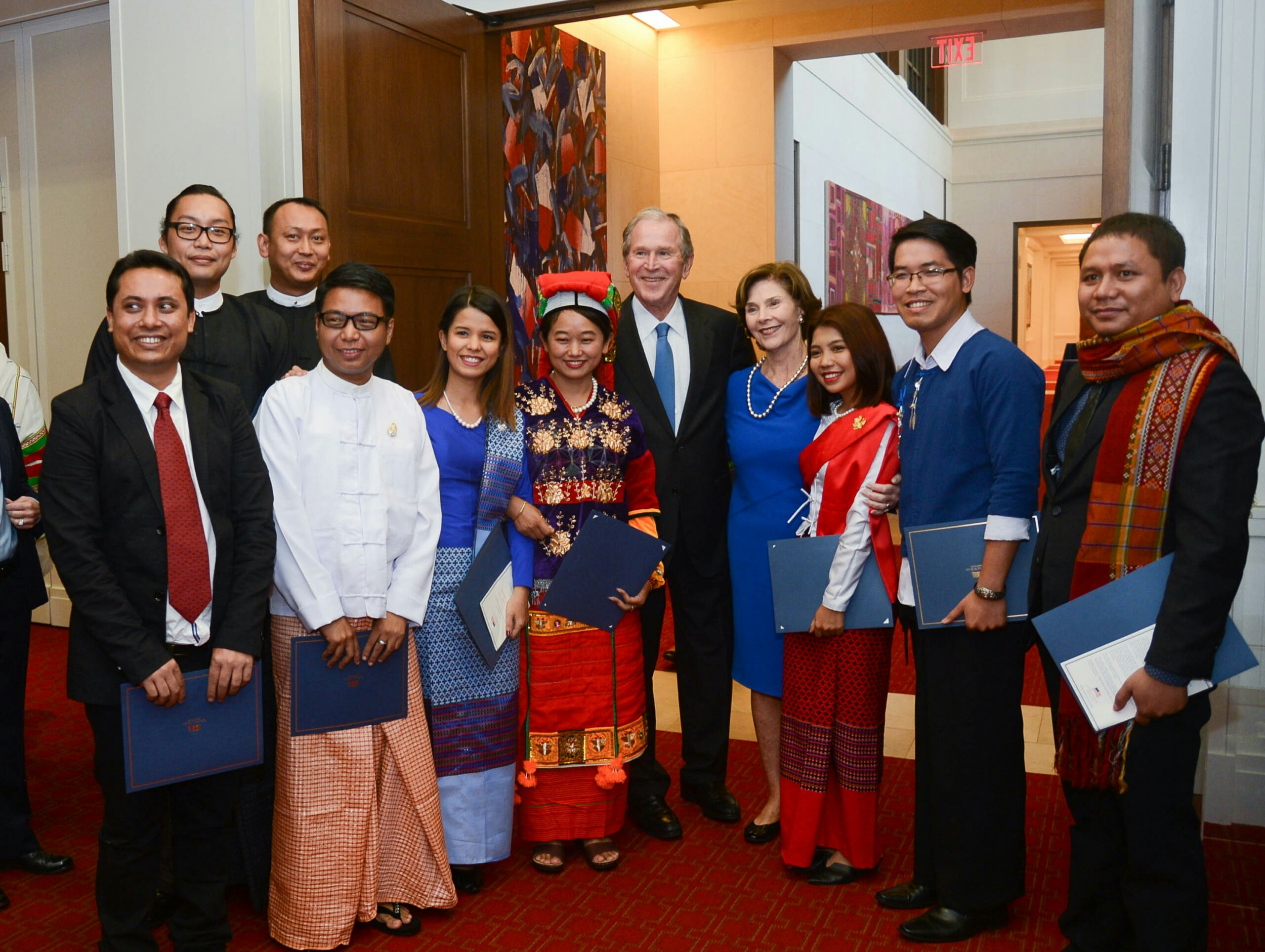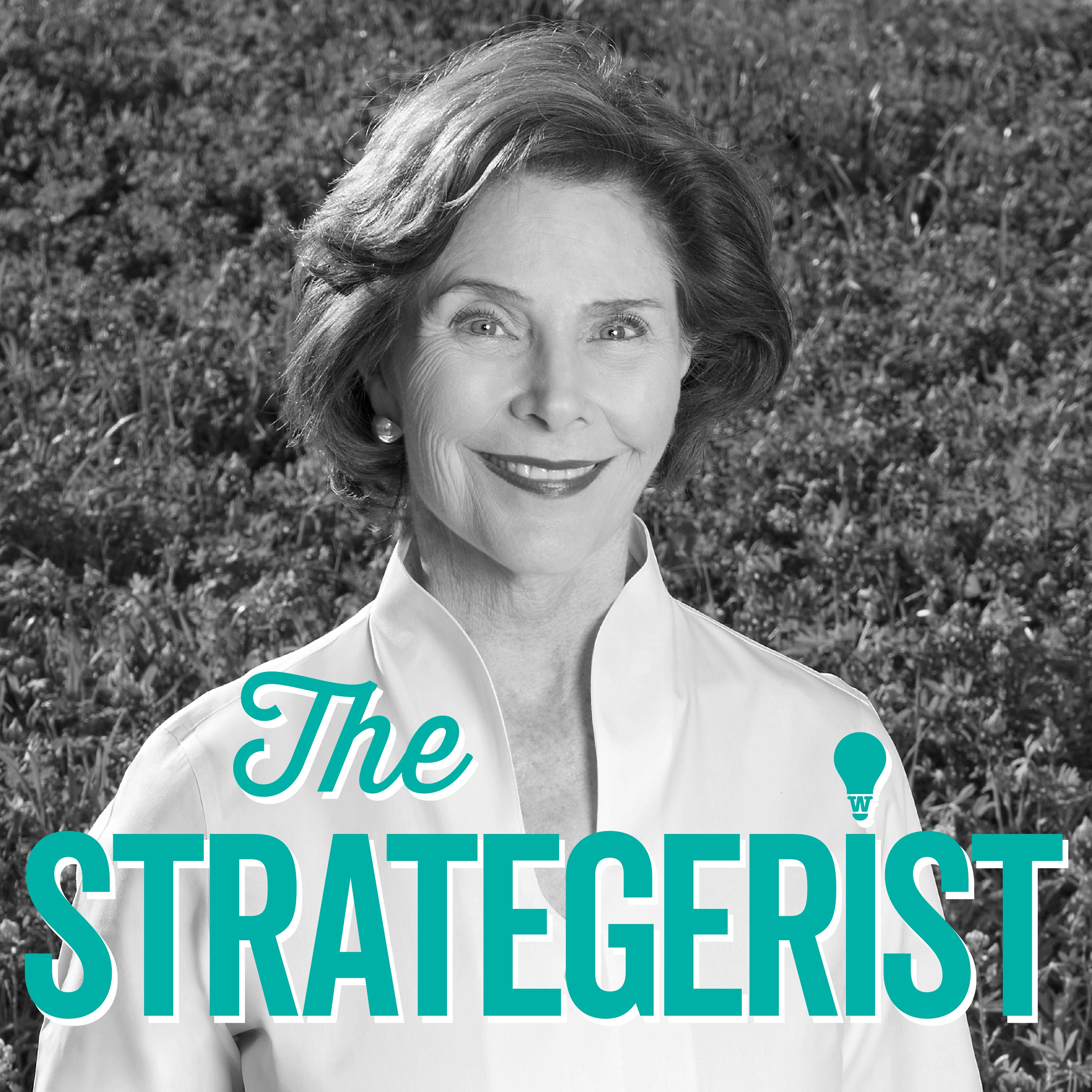George W. Bush Presidential Center
Dallas, Texas
Tuesday, May 14, 2024
Good evening and welcome to the 6th annual Laura Bush Book Club event, which is part of our series, Engage at the Bush Center, presented by NexPoint.
A special thanks to NexPoint for endowing our Engage series. I’d also like to thank H-E-B for supporting the Laura Bush Book Club, and thanks especially for inviting teachers and librarians as your guests for tonight’s program.
As a former teacher and librarian, I’m happy to be surrounded by educators and book lovers. You all are my people. (Applause.)
Before we get started this evening, I have two exciting announcements.
I’m thrilled to share that, this year, the Laura Bush Foundation for America’s Libraries has awarded a million dollars in library grants to 200 schools from 40 states, including 17 schools here in North Texas. (Applause.)
One of this year’s grant recipients is J.N. Ervin Elementary School, which I visited in March to celebrate Read Across America Day. I read Our Great Big Backyard to a 1st grade class.
One of the best parts of being a teacher is that your job is never boring. And reading to this class reminded me just how rewarding teaching is, and how grateful we should all be for the wonderful teachers that educate our children and grandchildren. (Applause.)
I’m proud that, since 2002, the Laura Bush Foundation has awarded $22 million dollars to over 3,800 schools. These grants help librarians restock and update their library collections with new books and revised resource materials. You can learn more about the Laura Bush Foundation by visiting www.bushcenter.org/LBF.
I am also excited that we have released my annual summer reading list. The 2024 Summer Reading List features something for everyone – from toddlers through middle schoolers.
We’ve selected three themes this year: The Dog Days of Summer, Paris 2024, and Friends and Family. And that includes classics like The Little Engine That Could as well as newer releases like Love Comes First,written by two of my favorite authors, our daughters Barbara and Jenna. (Laughter.) (Applause.)
The most important thing parents and caregivers can do for their children is to spend time reading with them. So, I hope you will bring this list to your local library, and pick out a few books to read as a family this summer. Your kids (and grandkids!) will love it, and so will you.
You can see the full summer reading list behind me or visit bushcenter.org/SummerReading2024.
And now…the reason you are gathered here is to hear from the esteemed author of The Tattooist of Auschwitz, Heather Morris, who traveled all the way from Australia to join us for tonight’s program.
The Tattooist of Auschwitz is an international bestseller, and for good reason. From the first page, readers are captivated, and shocked, by the bravery and resilience of the prisoners at Auschwitz-Birkenau.
I’ve been fascinated by this history since I was a little girl. My father served in the Army during World War II. When Daddy came home from the war in 1946, he brought with him eight tiny photos from Nordhausen, Germany – the site of the Mittelbau-Dora concentration camp.
Mother kept them along with some letters in an old latch-top cigar box.
As a child, I used to take them out one by one and examine them — to study the tiny images frozen in time by the camera’s lens. They were pictures of row upon row of bodies of the dead, some bloated and some so skeletal that they were little more than bones with the last remnants of skin stretched over them, and sunken torsos in which you could count every rib.
There was an image of three separate rows of bodies, some naked, some still wearing the rough striped pants and shirts that the Nazis had forced upon them.
My dad had written on the back that one of the photos shows how the lines of corpses continued well beyond the second white building. On another photo showing the grotesque death grips of naked men he wrote, after a long explanation, “Tear it up if you wish.”
But no one ever could, ever did, ever wanted to.
Daddy’s unit, the Timberwolves, had liberated Nordhausen. His battalion had fought its way into the heavily fortified German town. He was among the early wave of troops to enter the camp, sent to render aid and to witness what had happened at Mittelbau-Dora.
About 1,000 prisoners were alive when he arrived. Many of the living were hiding among the dead, or they were too weak to even roll away from those who had died next to them. Some of the newly freed tried with their last remaining strength to salute their liberators.
The American troops dropped their heads into their hands and wept.
My father wrote on the back of one small rectangle that he thought the photo would look different, but the camera lens had been too small to capture the enormity of the scene.
Yet Daddy did not talk about Nordhausen.
Once every year or two, when Mother, Daddy and I would open that box of photos, he could not bring himself to say a single word.
Decades later, right after George became President, I stood with George and my mother in the Capitol Rotunda for a ceremony marking the Day of Remembrance for the Holocaust. We watched as flags from each American military unit that had liberated the Nazi death camps were carried in.
We tried to remember which flag had been Daddy’s and then we saw it – the Timberwolf, with its signature wolf, head up, mouth open, as if in full howl.
Mother and I burst into tears.
All those years, we kept his photographs tucked away in that box, but they were so small, and the horror was so large.
George spoke at the ceremony. He said, “When we remember the Holocaust and to whom it happened, we must also remember where it happened. It didn’t happen in some remote or unfamiliar place. It happened right in the middle of the Western World…And the orders came not from crude and uneducated men, but from men who regarded themselves as cultured and well-schooled, modern and even forward-looking. They had all the outward traits of cultured men – except for conscience. Their crimes show the world that evil can slip in and blend in, amid the most civilized surroundings. In the end, only conscience can stop it.”
In 2003, the G8 summit was held in Evian, France. Before the summit opened, George and I traveled to Poland and made a special visit to Auschwitz-Birkenau.
George and I quietly walked along the train tracks that had carried carloads of humans, piled on top of each other, without light or fresh air.
I laid a single red rose at the terminus, where men, women, and children began to be herded left or right, to the gas chambers or to the labor camp, to work first and then die.
As I walked, I realized there are things that textbooks, photographs, and even graying documentary footage cannot teach.
They can’t teach you how to feel when you see prayer shawls or baby shoes left by children torn from their mothers, or prison cells with scratch marks of attempted escape.
And I wept when I saw the thousands of eyeglasses, their lenses still smudged with tears and dirt. I, who would be nearly blind without glasses or contacts, could suddenly imagine people being driven into terror, with no way to see, groping about with their hands.
And then there was the larger blindness, of the people who lived around the camps and around the world, of all those who refused to see what was happening.
The story of Lale and Gita open readers’ eyes to a time that’s impossible to imagine. And they show us that even in the darkest depths of horror, there is life, there is hope, and there is love.
So, thank you, Heather.
Thank you for turning Lale and Gita’s beautiful love story into a work of art, and into a lesson for us all.
Heather will be joined on stage by Anne Wicks, The Don Evans Family Managing Director of Opportunity and Democracy here at the Bush Institute.
So please join me in welcoming Heather Morris and Anne Wicks to the stage.
END



























